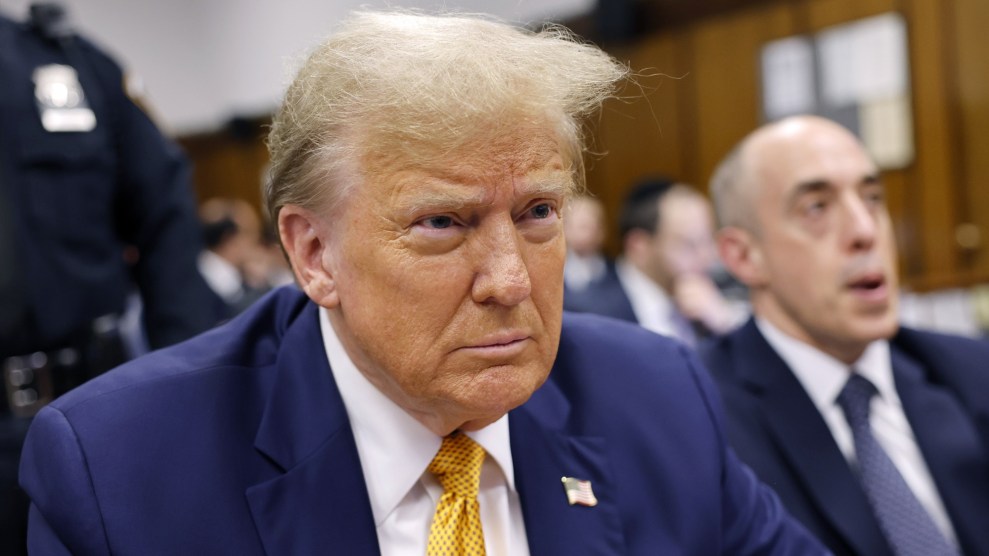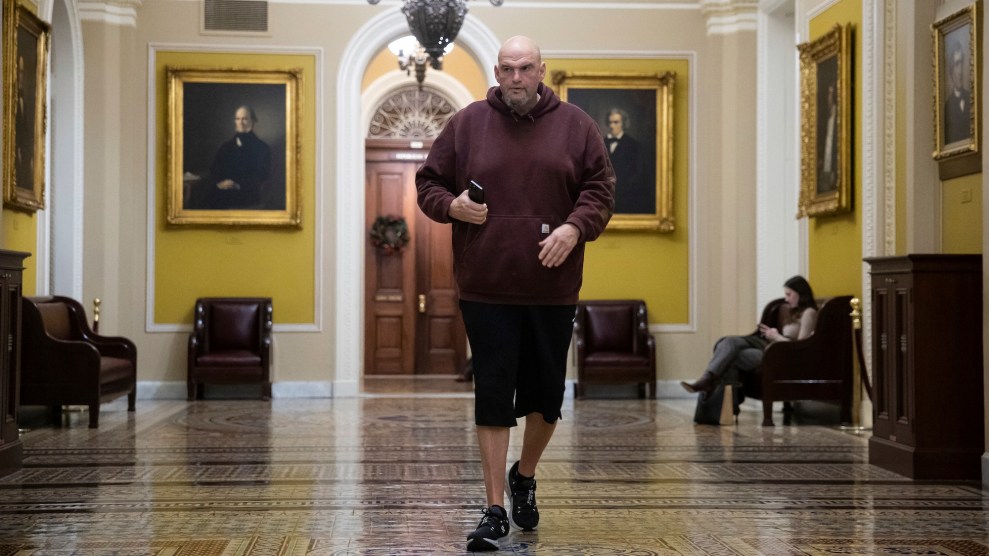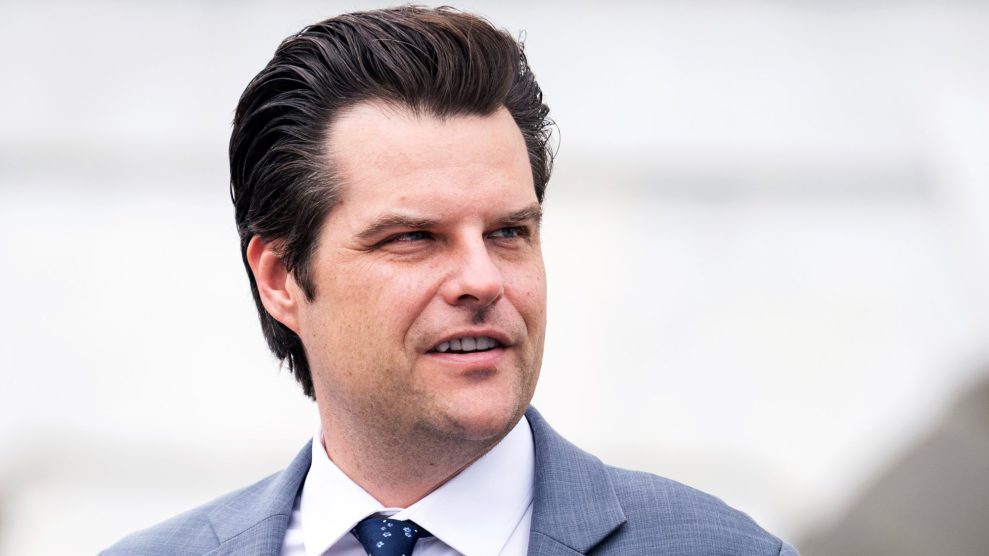The United States military could stay in Iraq for “maybe a hundred years” and that “would be fine with me,” John McCain told two hundred or so people at a town hall meeting in Derry, New Hampshire, on Thursday evening. Toward the end of this session, which was being held shortly before the Iowa caucuses were to start, McCain was confronted by Dave Tiffany, who calls himself a “full-time antiwar activist.” In a heated exchange, Tiffany told McCain that he had looked at McCain’s campaign website and had found no indication of how long McCain was willing to keep U.S. troops in Iraq. Arguing that George W. Bush’s escalation of troops has led to a decline in U.S. casualties, McCain noted that the United States still maintains troops in South Korea and Japan. He said he had no objection to U.S. soldiers staying in Iraq for decades, “as long as Americans are not being injured, harmed or killed.”
After the event ended, I asked McCain about his “hundred years” comment, and he reaffirmed the remark, excitedly declaring that U.S. troops could be in Iraq for “a thousand years” or “a million years,” as far as he was concerned. The key matter, he explained, was whether they were being killed or not: “It’s not American presence; it’s American casualties.” U.S. troops, he continued, are stationed in South Korea, Japan, Europe, Bosnia, and elsewhere as part of a “generally accepted policy of America’s multilateralism.” There’s nothing wrong with Iraq being part of that policy, providing the government in Baghdad does not object.
In other words, McCain does not equate victory in Iraq–which he passionately urges at campaign events–with the removal of U.S. troops from that nation. After McCain told Tiffany that he could see troops remaining in Iraq for a hundred years, a reporter sitting next to me quipped, “There’s the general election campaign ad.” He meant the Democratic ad: John McCain thinks it would be okay if U.S. troops stayed in Iraq for another hundred years…..
Well, it was straight talk. And McCain’s combativeness livened up a session during which he alternated between the old McCain (as in punchy, feisty, humorous) and the old McCain (as in just plain old). He moved a bit stiffly on the stage set up in the middle of the Adams Memorial Opera House. And he–somewhat oddly–shared the spotlight with Senator Joseph Lieberman, who has endorsed him. Lieberman did not merely introduce McCain; he stood by McCain during the entire event, helping McCain to answer questions about education, climate change, and the Iraq war. Several times, Lieberman gave more coherent and animated replies than did McCain. Repeatedly, Lieberman maintained that McCain could rack up bipartisan successes as president. (The Lieberman sidekick bit was curious. But an elementary-age girl in the audience did say, after being handed a microphone, that Lieberman was her role-model and that she fancied McCain. Lieberman hugged her, and the whole crowd oohed at this cuteness.)
Update: Video after the jump.
McCain has been coming on strong in New Hampshire, where he beat George W. Bush by 18 points in the 2000 Republican primary. (Some polls place him in the lead.) Eight years ago, McCain thrived as an independent-minded GOPer willing to blast the corruptions of Washington. These days, his stock appears to be rising because he has stuck with the Iraq war and boasts of years of national security experience. “If the world was stable, we could afford Mitt Romney as the national CEO,” says a McCain campaign aide (who asks not to be identified). “But in an unsafe and unstable world, Republican voters, and some independents, are coming to see that we need a warrior in the White House.” The crisis in Pakistan, this aide notes, was a timely reminder.
So McCain is not doing so bad for a candidate who was on life-support last summer. But it’s not that he has craftily orchestrated his revival; the other campaigns have fallen flat. Romney has hard a tough time selling himself as a fellow ready to be commander in chief. Rudy Giuliani cast himself as Mr. 9/11–which is different from persuading voters you are Mr. Win the War. Fred Thompson, who highlighted the foreign policy experience he obtained on the Senate intelligence committee, has mounted a lackluster bid. Mike Huckabee has had little to say about national security and has gaffed too often on foreign policy. Regarding national security and the war, McCain has become the default Republican.
“The Mac is back,” Lieberman exclaimed in Derry. Perhaps it’s merely that McCain managed to stay on his feet while his rivals have faltered. In the next few days, McCain and his supporters will be pushing him as the Republican who is ready for wartime. This is a potent argument. But will it win over the New Hampshire independents who swooned over McCain in 2000? This slice of the electorate is not particularly fond of the war McCain champions. Michael Dennehy, McCain’s political director, says that independents “will agree to disagree on the war with him if they think he’s being honest.” Well, with McCain boldly declaring he doesn’t give a damn how long U.S. troops are deployed in Iraq, his strategists can certainly say he is not holding back. Whether that indeed impresses independents (and Republicans) in New Hampshire won’t be known until this Tuesday.

















